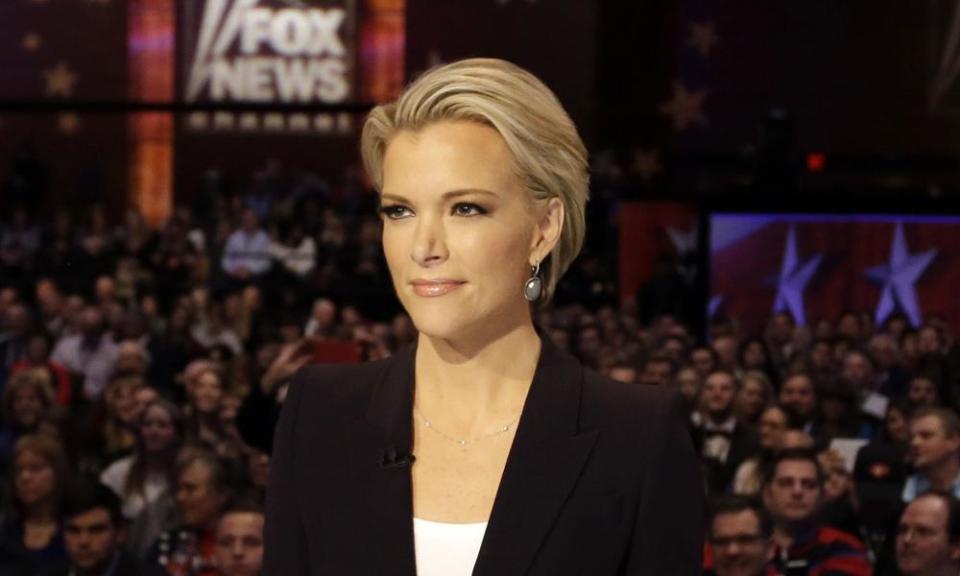Megyn Kelly was meant to bridge the partisan divide. She failed
The fact that 47-year-old woman did not already understand the history and harm of blackface justifies NBC parting ways with her

Following Megyn Kelly’s latest demonstration of poor judgment and ignorance by condoning the wearing of blackface for Halloween, NBC is now set to part ways with her. And while Kelly’s departure might be shocking due to NBC’s massive investment in Kelly — a $23m annual salary and a coveted role on Today — it was seemingly inevitable.
In early 2017, NBC News chief Andrew Lack hired Kelly from Fox News with the hope that she could appeal to conservative viewers without alienating their more liberal MSNBC viewers. And right from the start, Kelly’s desire to give voice to right-wing conspiracy theorists such as Alex Jones essentially foretold the sooner rather than later end of her NBC tenure.
On its own, Kelly’s defense of wearing blackface on Tuesday’s episode of her show Megyn Kelly Today warrants the cancelling of her show, but it is also the final straw within her short and rocky tenure at NBC. Additionally, it represents a microcosm of her inadequacy as a bipartisan television personality.
When Kelly defended the use of blackface on her show she claimed that, “Back when I was a kid, that was okay as long as you were dressing up like a character.” And I’m sure she’s telling the truth. Kelly was born in 1970 and was primarily raised in upstate New York in the cities of DeWitt and Delmar. In the 2000 census, DeWitt was nearly 90% white and less than five percent African American, and Delmar was almost 97% white and only one percent African American.
It is much easier to condone blackface when you have no black neighbors.
Kelly grew up in a world without diversity and she still employs the lessons from her youth as a guide within an increasingly diverse and racially equitable America. Kelly tacitly yearns for the simplicity of her homogenous white upbringing as a panacea against the complexity of an America with a growing chorus of non-white voices.
This inclination makes her wholly inadequate to progressives, yet her conservative appeal has also fallen since she left Fox News. Kelly exists within a cultural, political, and journalistic no man’s land.
Lack brought Kelly to NBC to bridge the partisan divide, yet despite her evident disdain for Trump she unintentionally espouses his divisive philosophy albeit with a slightly more palatable façade.
While it would be unfair to describe Kelly as a racist, the logical and emotional foundations of her stance on blackface bear greater resemblance to Trump’s “Make America Great Again” rhetoric than any other current political message. They both ache for a white dominated yesteryear where overt racism was not considered racism because America’s systemic racism had effectively silenced the voices, ignored the history, and marginalized the existence of the non-white Americans negatively impacted by these actions. One side thirsts for white supremacy and the other remains cosseted in the ignorance of non-white people and the systemic racism that buttresses their white homogeneity. Kelly is obviously the latter.
On Tuesday after the airing of her show, Kelly sent an internal email to NBC colleagues apologizing for her comments regarding blackface, and on Wednesday Al Roker, Kelly’s colleague at NBC and on Today, responded to her Tuesday comments and apology: “The fact is, she owes a bigger apology to folks of color around the country. This is a history, going back to the 1830s [with] minstrel shows. To demean and denigrate a race wasn’t right.”
On her Wednesday show Kelly issued a public apology and soon thereafter it was announced that she would not appear on her show for the rest of the week. Later in the day, Lack held a town hall meeting with NBC staff and denounced Kelly’s comments: “There is no other way to put this: I condemn those remarks; there is no place on our air or in this workplace for them.”
In Kelly’s internal and public apologies she stressed how via conversations with close friends and colleagues she has learned the error of her ways. Regardless of whether Kelly has or has not turned a corner, the fact that a 47-year-old woman did not already understand the history and harm of blackface means that she should no longer be considered an authority figure with the nous to inform and educate the public in our increasingly complex, tense and racially fraught climate.
Kelly was supposed to help NBC appeal to Americans on the left and the right, but all she did was perpetuate the dangerous ignorance and anxiety many white Americans feel in an increasingly diverse America. This misguided rhetoric only drives us further apart, so it only makes sense for Kelly and NBC to part ways too.
Barrett Holmes Pitner is a freelance journalist

